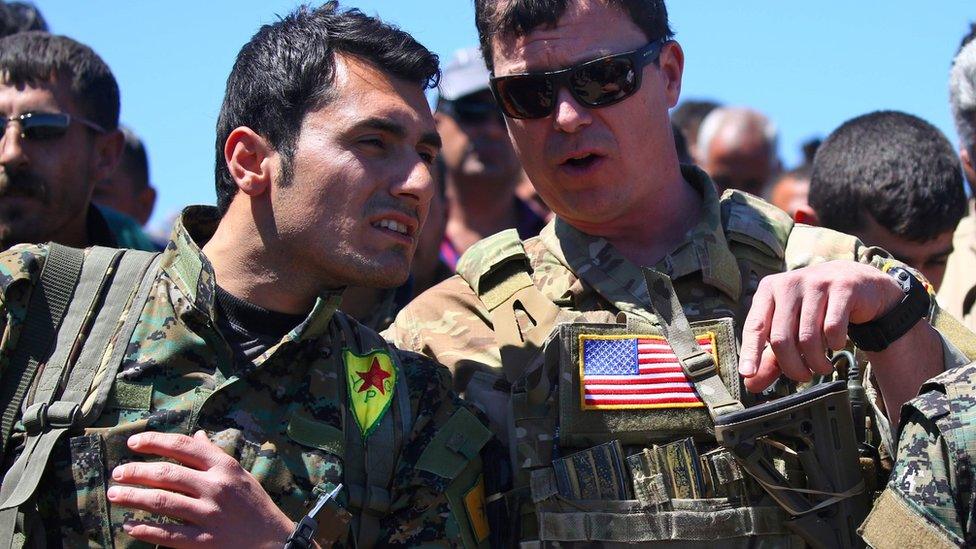Raqqa: Syrian capital of the IS 'caliphate'
- Published
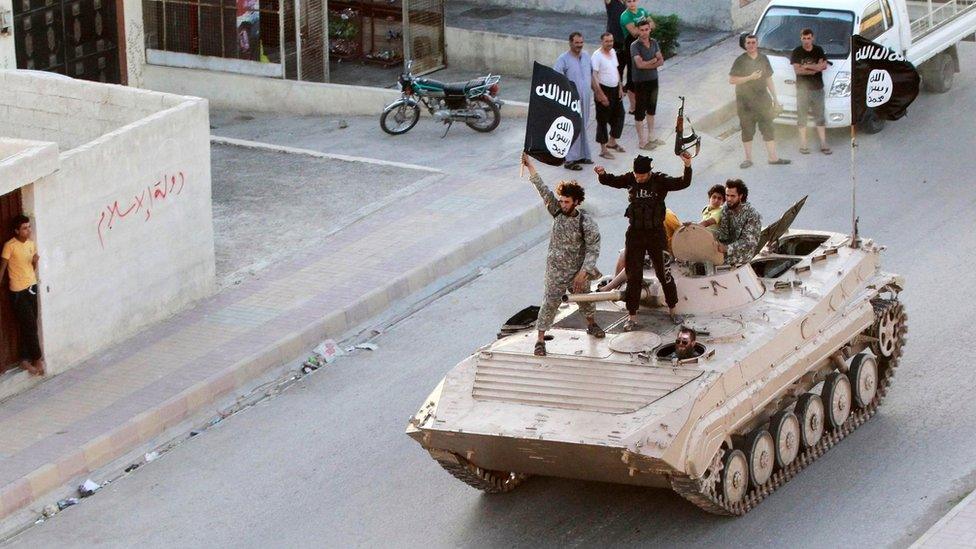
IS militants paraded through Raqqa after the "caliphate" was proclaimed in June 2014
Raqqa, in northern Syria, became the de facto capital of the "caliphate" proclaimed by so-called Islamic State (IS) three years ago.
The provincial city was transformed under IS, which implemented an extreme interpretation of Islamic law there and used beheadings, crucifixions and torture to terrorise residents who opposed its rule.
Now, a US-backed alliance of Kurdish and Arab fighters is seeking to drive IS out of the city and deliver another blow to a group in retreat across Syria and Iraq.
"Welcome to Raqqa, capital of a caliphate under siege": Gabriel Gatehouse reports from the front line
Raqqa sits on the River Euphrates, about 360km (225 miles) north-east of the Syrian capital, Damascus.
The Roman author Pliny the Elder wrote that it was founded by Alexander the Great. But it is more likely to have been one of his generals, Seleucus Nicator, who established the Seleucid Empire.
The first settlement was built near Tal Bia, a hill just to the east of the present city walls, and became known as Callinicum, after a Seleucid king who expanded it around 244-42BC.
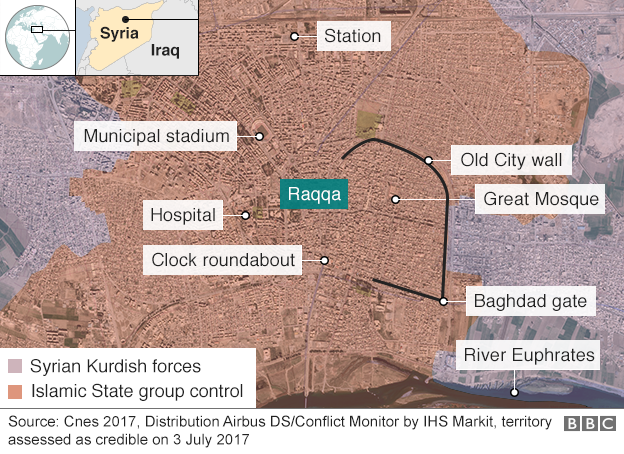
After the town fell to Muslim forces in AD639-40, the Umayyad Caliph Hisham is said to have built two palaces there and renamed it Raqqa ("the marsh").
In 771, the Abbasid Caliph al-Mansour chose Raqqa to serve as a second capital after Baghdad, and to help him defend north-eastern Syria, known as "al-Jazira".
He renamed the town al-Rafiqa ("the companion"), and ordered the construction of double-thick mud brick walls around it in the shape of a horseshoe, strengthened every 35m by 100 semi-circular towers.
The Great Mosque was also built during this time, although the only surviving ancient parts are a minaret and colonnade added in 1165-66 by Nur al-Din Mahmoud Zangi.
Raqqa was substantially remodelled by the great Abbasid Caliph Haroun al-Rashid, who chose the town as his base from 796 until 808, the year before his death.
It retained its role as an important regional centre under the Zengid and Ayyubid dynasties, but fell into ruin after being sacked by the Mongols in 1258.
Raqqa only really recovered in the 1960s, when it was made the administrative capital of the new province of Raqqa and the Tabqa Dam was built on the Euphrates about 40km (25 miles) upstream.
By 2004, Raqqa was the sixth largest city in Syria, with a predominantly Sunni Arab population of 220,000.
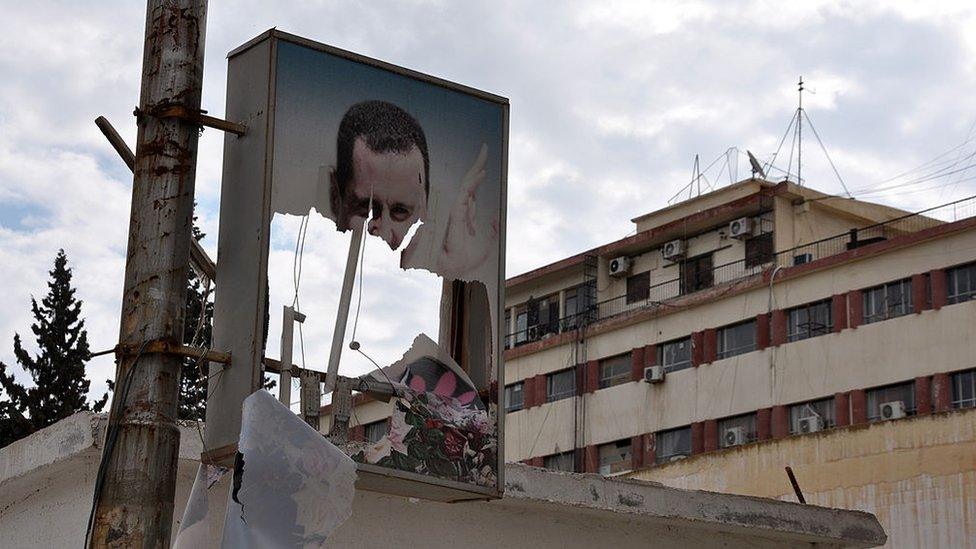
Raqqa was a centre of the uprising against Bashar al-Assad's government, which began in 2011
In March 2013, Raqqa rose to prominence after it became the first provincial capital to fall to rebels and jihadists seeking to topple Syrian President Bashar al-Assad.
They included members of was to become known as "Islamic State in Iraq and the Levant" (Isis or Isil), who seized control of the city by force in early 2014 and then began imposing their vision of a state.
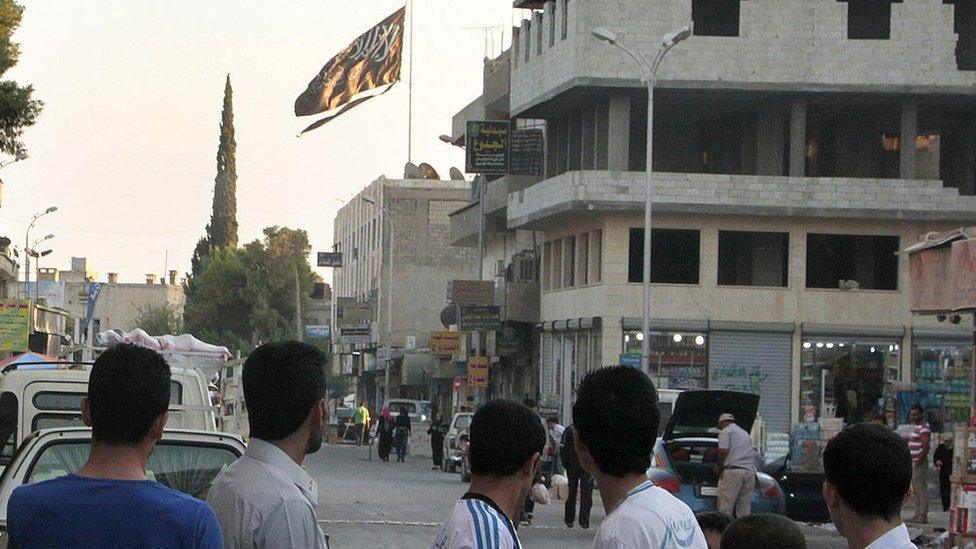
IS has implemented an extreme interpretation of Islamic law in Raqqa
In June 2014, after overrunning much of northern and western Iraq, Isis declared the creation of a caliphate and changed its name to "Islamic State".
The group demanded that Muslims across the world swear allegiance to its leader, Abu Bakr al-Baghdadi, and migrate to territory under its control.
Thousands of people, many of them citizens of Western countries, heeded the call and travelled to Raqqa via Turkey.
The city has been repeatedly hit by air strikes since the US-led anti-IS coalition began operations in September 2014, causing what the UN called a "staggering loss of civilian life".
Some 160,000 residents have fled their homes to escape the raids, it said.

- Published4 July 2017
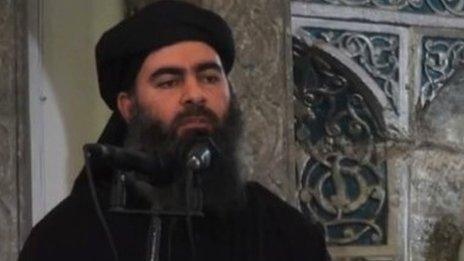
- Published22 June 2017
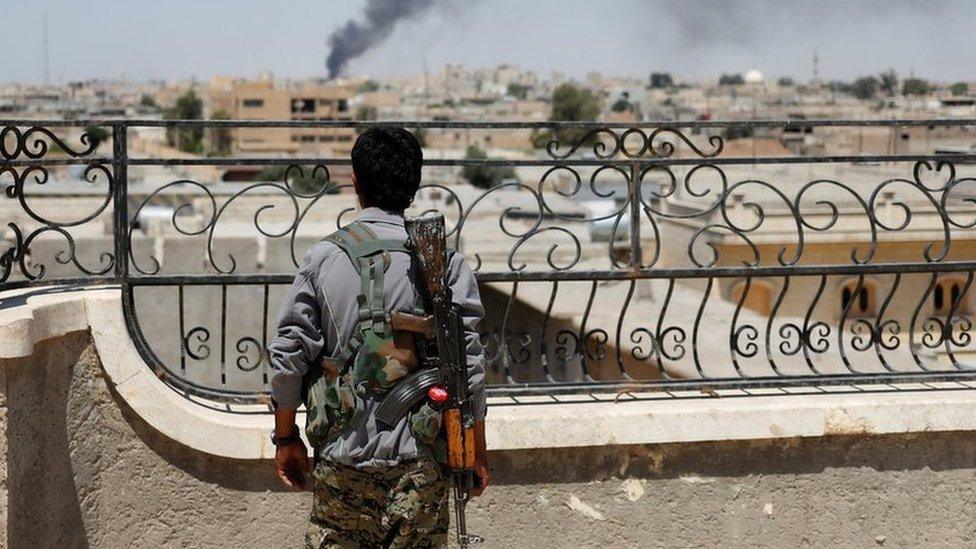
- Published10 June 2017
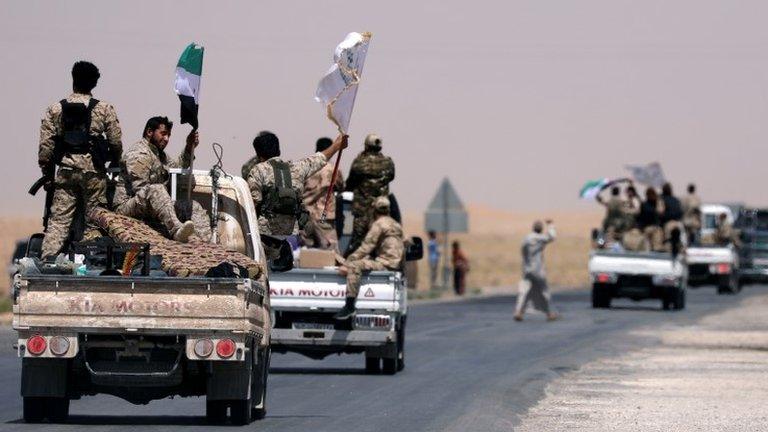
- Published8 June 2017
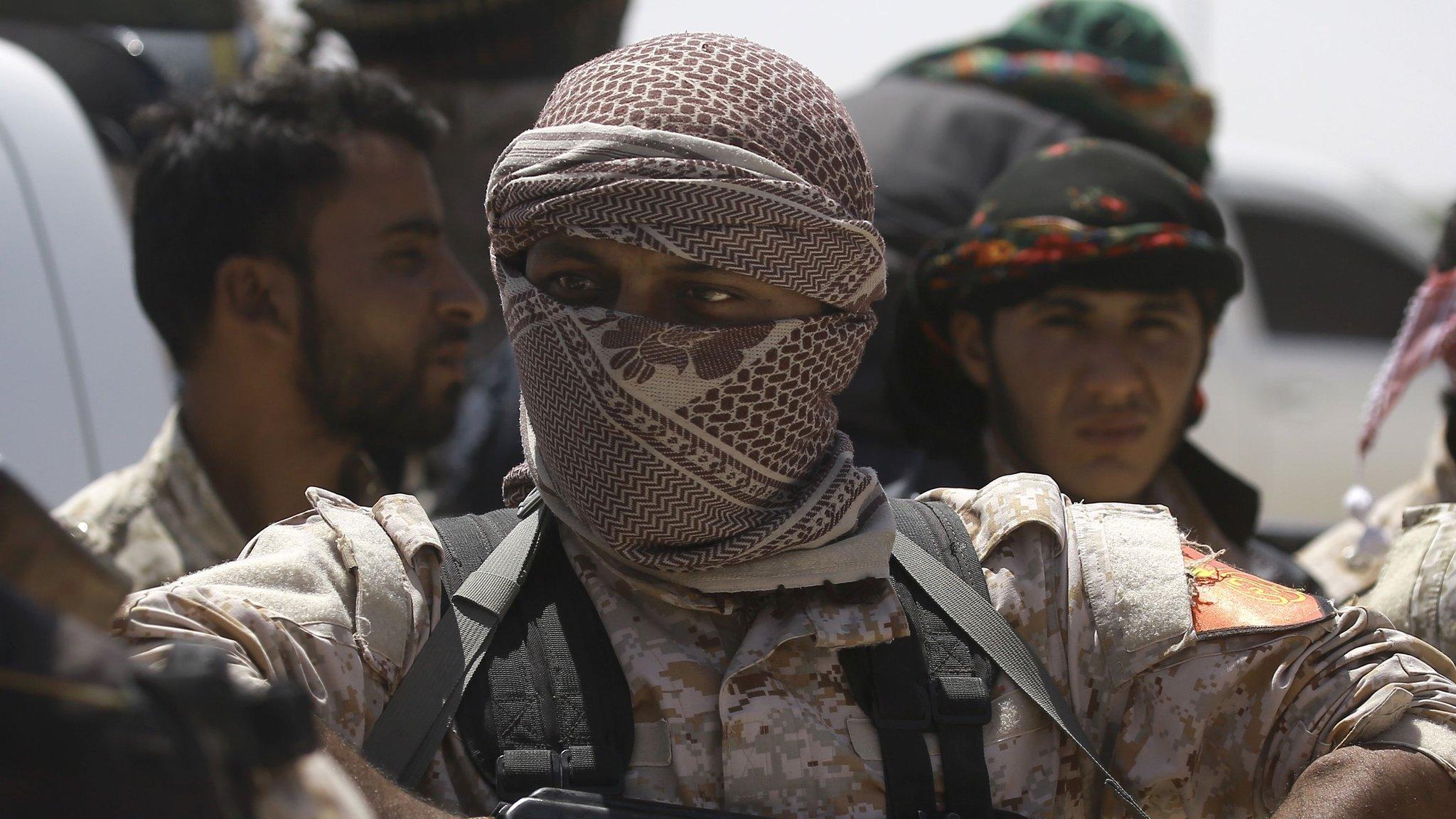
- Published30 May 2017
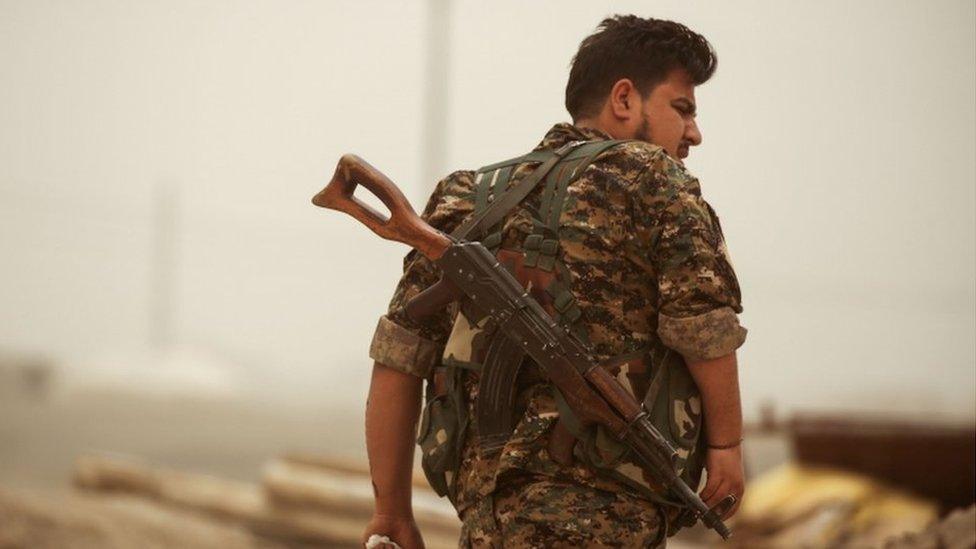
- Published24 May 2017
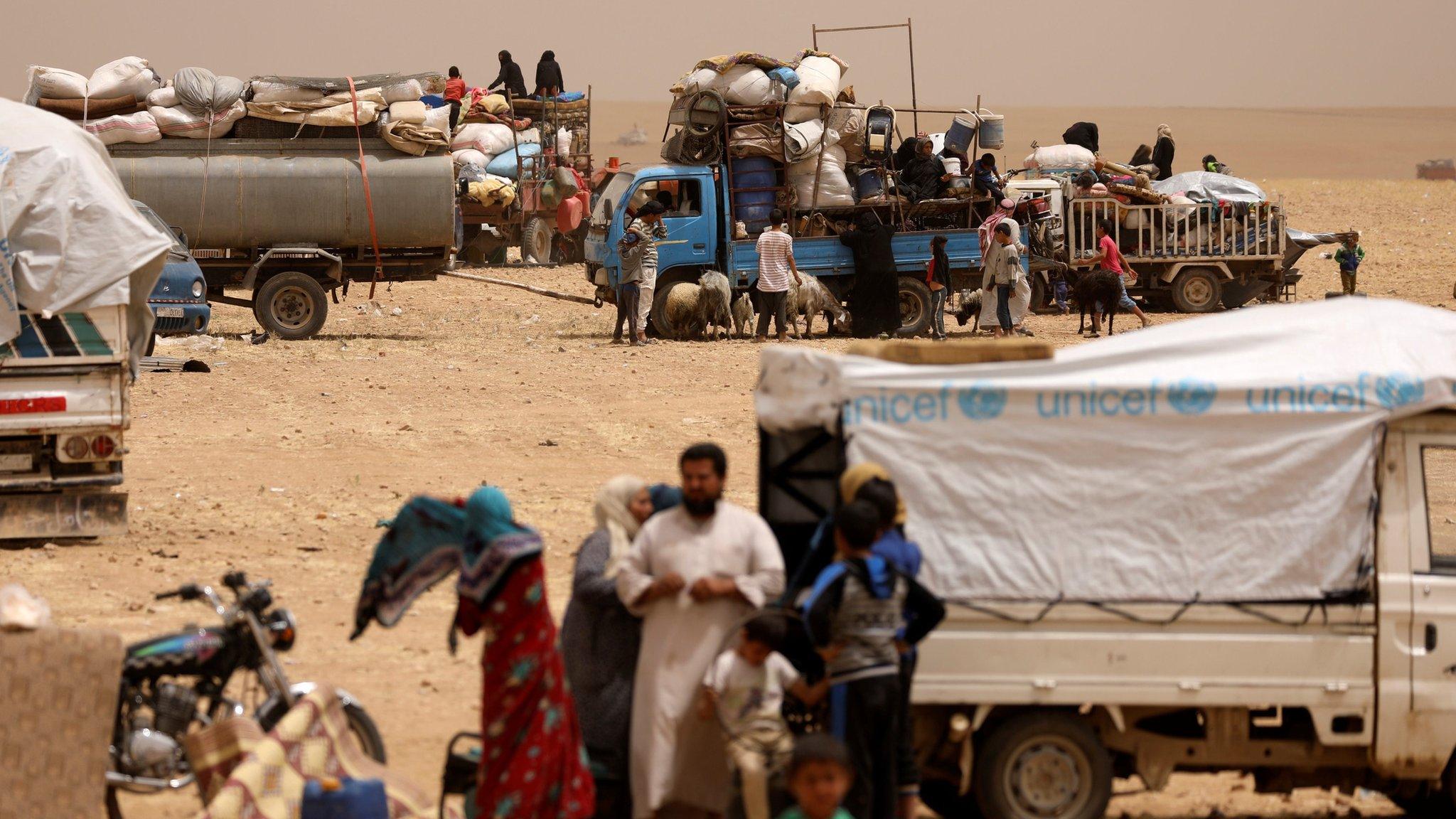
- Published17 May 2017
